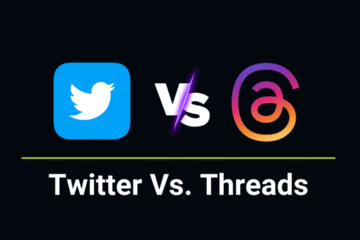Celebrity culture has long fascinated the world. From red carpet appearances to magazine covers and now social media stories, fans have always been drawn to the glamorous lives of the rich and famous. But in the age of Instagram, where filters polish every photo and captions turn ordinary moments into curated stories, the illusion has grown stronger than ever.
At first glance, it may seem like celebrities live lives of constant luxury, beauty, and success. Scroll through their feeds and you’ll see private jets, designer outfits, flawless skin, lavish vacations, and VIP parties. But that glossy perfection hides a deeper truth. Behind every staged photo is a carefully managed image, and behind every smile, there is often a reality few talk about.
Let’s take a closer look at the darker side of celebrity culture and what Instagram doesn’t reveal.
The Pressure to Be Perfect
One of the most damaging aspects of celebrity culture today is the relentless pressure to maintain an image of perfection. Celebrities are expected to look flawless, be successful at all times, and avoid controversy unless it benefits their brand.
This pressure is magnified on platforms like Instagram, where comparison is constant. Public figures are not just entertainers anymore. They are brands. Their social media pages are carefully curated extensions of their careers. Every post is a marketing move, every story is content, and every “like” or comment affects their next paycheck.
Behind the perfect selfie may be hours of makeup, lighting, editing, and sometimes even surgery. But for fans, especially young ones, the final image often feels authentic, leading to unrealistic standards and body image issues.
The Toll on Mental Health
What many people don’t see are the emotional consequences of fame. Living under a microscope takes a toll on mental health. Celebrities often face constant criticism, online bullying, public scrutiny, and immense pressure to stay relevant. Their personal lives are dissected daily, and every mistake can become a trending topic.
Many stars have spoken out about struggles with anxiety, depression, burnout, and addiction. The demand to always be “on” doesn’t allow space for vulnerability or rest. Even while dealing with grief, heartbreak, or trauma, they are expected to perform for the camera.
Instagram makes it seem like their lives are carefree, but for many celebrities, loneliness, exhaustion, and identity loss are all too real. Fame isolates more often than it connects, and for those constantly in the spotlight, the cost can be devastating.
Fabricated Realities
Another aspect Instagram hides is the manufactured nature of celebrity lifestyles. From rented cars and borrowed outfits to staged photoshoots made to look candid, much of what fans see isn’t real. Influencer culture has now merged with celebrity culture, making it harder than ever to distinguish authenticity from performance.
Many celebrities partner with stylists, social media managers, and marketing teams to plan each post. They follow algorithms, trends, and brand strategies to keep engagement high. Even their captions are often written or approved by a team.
This carefully constructed content creates a fantasy for followers. Fans start believing that money and fame equate to happiness, while in reality, many celebrities are just as unsure, anxious, or insecure as anyone else.
Cancel Culture and the Fear of Missteps
In today’s climate, one wrong comment or controversial post can spark outrage. Cancel culture looms over every celebrity’s digital presence. Instagram, being a public-facing and fast-paced platform, has become a battleground for reputation.
This fear of backlash leads many celebrities to avoid speaking their minds or to issue rehearsed, vague statements. It creates an environment where authenticity is discouraged, and safe, shallow content is rewarded.
Behind the scenes, celebrities may deal with constant coaching, PR briefings, and media training just to survive on social media. The freedom Instagram seems to give often comes with invisible chains. It’s less about self-expression and more about image control.
Toxic Fan Culture
Another dark aspect of celebrity life is the toxicity that can come from their own followers. Fandoms today are intense. While many fans are supportive and kind, others cross boundaries. Parasocial relationships—where fans feel deeply connected to someone who doesn’t know they exist—can lead to entitlement, obsession, or harassment.
Celebrities often deal with stalkers, doxxing, invasive questions, and emotional demands from fans who feel they “deserve” access to their personal lives. On Instagram, where direct messages and live comments allow constant interaction, boundaries become blurred.
The image of a happy, smiling celebrity on a beach may hide the reality of fear, stress, or invasion behind the camera. This pressure from fan culture adds another layer of emotional burden to their already complex lives.
Financial Instability Behind the Glamour
It’s easy to assume that every celebrity is rich, but the truth is often more complicated. Many influencers and lower-tier celebrities live beyond their means to maintain an image. Renting luxury homes, wearing expensive clothes, and traveling the world can be part of the job—but not always funded by wealth.
Some celebrities face unstable incomes, high expenses, and short career spans. The cost of staying relevant includes hiring teams, attending events, investing in branding, and constantly marketing themselves. Financial stress, though hidden behind beautiful Instagram posts, is a common and rarely discussed reality in celebrity culture.
Exploitation and Control
Young celebrities, especially those who rise to fame early, often face exploitation. Managers, brands, and production companies sometimes treat talent as products rather than people. Instagram becomes just another tool to sell their image, and personal boundaries are often ignored.
Celebrities may be forced to promote products they don’t believe in or share moments they’d rather keep private, all to meet contractual obligations or keep fans engaged. The smiling face in a brand deal may mask exhaustion, discomfort, or disillusionment.
This exploitation is even more common among child stars, reality TV contestants, and social media influencers, who may lack guidance or protection from such pressures.
The Illusion of Happiness
Perhaps the most deceptive aspect of celebrity culture on Instagram is the illusion of constant happiness. Smiles in luxury settings, couple selfies, group hangouts with other famous friends—it all paints a picture of a life that seems perfect.
But happiness is not constant, even for the rich and famous. Relationships fail, friendships fade, and stress doesn’t disappear with fame. The pressure to appear happy becomes a trap. Many celebrities feel like they must always be grateful, always be positive, and always perform joy, even when they’re hurting.
Fans don’t see the moments of doubt, the nights without sleep, or the therapy sessions between photoshoots. Instagram shows the highlight reel, never the full story.
Final Thoughts
Celebrity culture, as seen on Instagram, is a filtered version of reality. Behind every stunning photo lies a world of pressure, sacrifice, and complexity. The real lives of celebrities are often hidden behind branding, algorithms, and expectations that few could endure.
While there’s nothing wrong with admiring talent or enjoying a glimpse into someone else’s world, it’s important to remember that Instagram is not the truth—it’s a performance. The most important conversations begin when we stop comparing ourselves to these curated lives and start asking what’s really going on behind the screen.
Celebrity culture isn’t going anywhere. But understanding its dark side helps us see that no life—no matter how glamorous it appears online—is perfect. And that reminder might be the most human thing of all.



